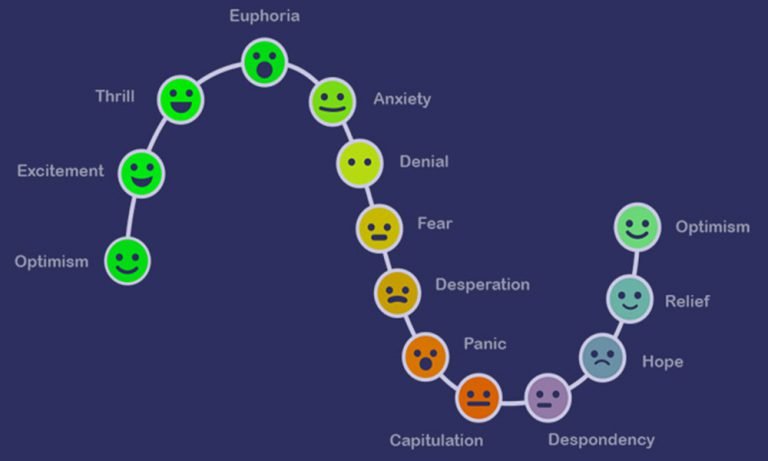When it comes to trading, emotion scan deter your efforts. For example, getting too emotional about your trades can lead to impulsive decisions costing you money, and many traders find that keeping their emotions in check help them make more rational decisions that ultimately result in greater profits.
So, what are the most common emotions that traders experience, and how can they be used to your advantage?
Fear
It’s the most common emotion that traders feel, and it can have a significant impact on their decision-making process. Fear can cause traders to hesitate or even exit their positions prematurely when faced with a potential loss. Conversely, when presented with the opportunity to take a risk, fear can cause traders to second-guess themselves and miss out on potential profits.
The key to managing fear is to be aware of it and understand its impact on your decision-making. When you feel fear, take a step back and assess the situation objectively. Are you really in danger of losing money, or is your fear simply causing you to overthink things? If it’s the latter, then don’t let fear control your decisions – instead, use it as motivation to do your due diligence and make sure that you’re making the best possible decision for your trade.
Greed
Greed is another emotion that can significantly impact traders‘ decision-making. When presented with the opportunity to make a quick profit, greed can cause traders to take on too much risk or hold onto their positions for too long. It can often lead to losses, as greed can cause traders to overestimate their ability to predict market movements.
Like fear, the key to managing greed is to be aware of it and understand its impact on your decisions. When you start feeling greedy, take a step back and assess the situation objectively. Is the potential profit worth the risk? Or are you simply letting your greed cloud your judgment? If it’s the latter, then don’t let greed control your decisions.
Anger
Anger is another emotion that traders often experience, and like hope, it can often lead to impulsive decisions. When faced with a losing position, anger can cause traders to exit their positions prematurely or take on too much risk to ‘get even’. Conversely, when presented with a winning position, anger can cause traders to hold onto their positions for too long or take on too much risk to ‘run up the score’.
Again, the key to managing anger is to be aware of it and understand its impact on your decisions. When you start feeling angry, take a step back and cool down before making your next trade. This way, you can prevent yourself from making the wrong decisions by impulse.
Anxiety
Anxiety is another common emotion that traders feel, and like fear, it can often lead to making decisions that are not well thought-out. When presented with a potential loss, anxiety can cause traders to exit their positions prematurely or take on too much risk to avoid the loss. Similarly, when presented with a potential profit, anxiety can cause traders to hold onto their positions for too long or take on too much risk to maximise their profits.
Anxiety can also arise from having to navigate market charts. Technical analysis may not be every trader’s strong suit, and those who want to utilise this method should understand how to do it before opening and closing positions.
Anxiety can be managed by simply opening and maintaining smaller positions and ensuring that you minimise your risks. There is no reason for you to open big trades and invest money you cannot afford to lose. If you stick to trading within your means, you will be able to alleviate a lot of worry and stress about stock market performance.
The bottom line
At the end of the day, humans are emotional creatures. When trading, it is not possible to completely avoid having emotions. The best you can do is make the most out of them and not let them overrule your rational mind.
If you are looking to get started as a trader, you can get more info on the type of stocks and stock trading methods available in the UK.
Follow – https://nextglobalbusiness.com for More Updates

